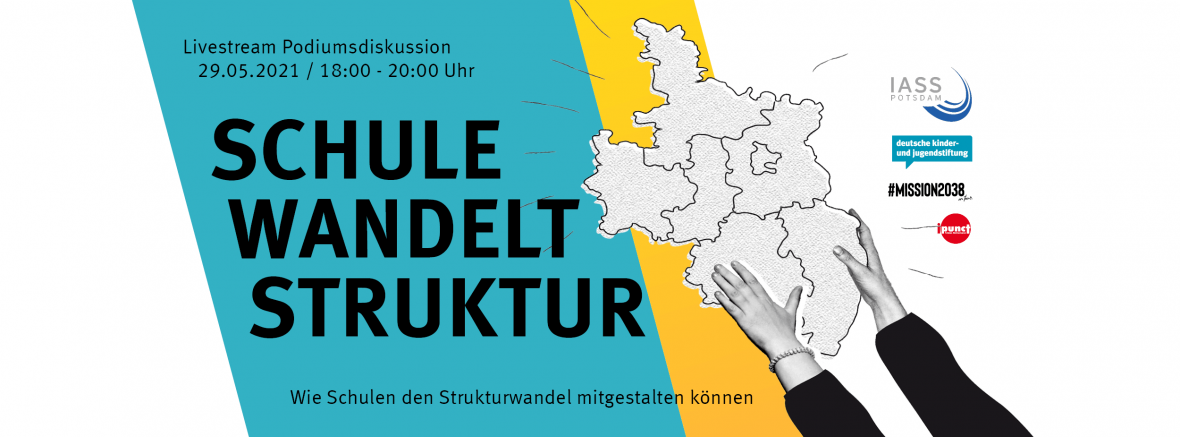Education for Sustainable Development in a Changing Region
18.05.2021
How can school pupils get to grips with the transformation processes underway in the former coal-mining region of Lusatia and take an active role in shaping change? In a new study, IASS researchers show how teachers can engage with these issues in and outside their classrooms. The aim is not only to stimulate discussions, but also to empower young people to participate in the transformation process.
According to economist and education researcher David Löw Beer and cultural studies and education researcher Verena Holz, the transformation processes unfolding in Lusatia are ideal terrain for educational approaches focussed on fostering sustainable development. “Within socio-economic transformation processes, the task of education is often reduced to ensuring that employees are able to acquire suitable qualifications. We believe that in the long run society can reap more benefits from a broader understanding of education. This includes learning to enable a high and sustainable quality of life within a democratic society," says Löw Beer. Teachers should accordingly not only discuss transformations with their students, but also support their efforts to become actively involved.
Schools cooperate with local initiatives
Socio-economic transformations entail considerable uncertainty, including for young people. Providing resources and developing plans will not be enough to keep them in the region. Rather, there must be a focus on developing perspectives that empower young people to take ownership of transformation processes. School policies in Brandenburg and Saxony offer opportunities to achieve this. However, courageous initiatives are needed on the ground in order to foster a school system that is participation-oriented and geared towards sustainability. Finally, the findings from model projects on the ground should be brought to the attention of the public and relevant political bodies, such as state governments.
Empowering students to shape structural change processes is desirable both from a democratic political perspective - because it gives those affected a voice ¬- and from an educational perspective, as it creates valuable opportunities to acquire democratic competences. The processes to which young people can contribute include various debates on the development and focus of municipal infrastructure, for example, which play a crucial role in determining the quality of life of children and young people.
Educators build knowledge and participation competence
The IASS researchers recommend that educators combine different approaches to teaching: Transformative learning emphasises self-determined individual learning processes linked to personal development. Education for sustainable development provides a framework in which conflicts around transformations can be negotiated. Socio-economic education enables learners to explore development processes from multiple perspectives, including history, politics, society and ethics and law. Civic education stresses the importance of participation and reflection in relation to authentic political processes.
Educators should draw on these concepts to foster two specific competences: Participation competence and Knowledge about structural change, regional economy and political structure. “One major challenge is the need to design educational programmes for secondary schools in such a way that their effects are broader than the mere acquisition of knowledge and actually enable students to shape and transform society. This means that school education in this sense must pursue the promotion of action competences as a central goal”, explains Verena Holz. Providing appropriate educational opportunities that foster participation can encourage and empower young people to participate more broadly in (citizens’) initiatives, organizations and parties, and lay the foundations for a resilient and sustainable political culture.
Löw Beer, D., Holz, V. (2021 online): Education for Sustainable Development in Structural Change Processes Using the Example of the Coal Phase-out in Lusatia. – Journal of Education for Sustainable Development. https://doi.org/10.1177/09734082211005040
Related event:

Contact

